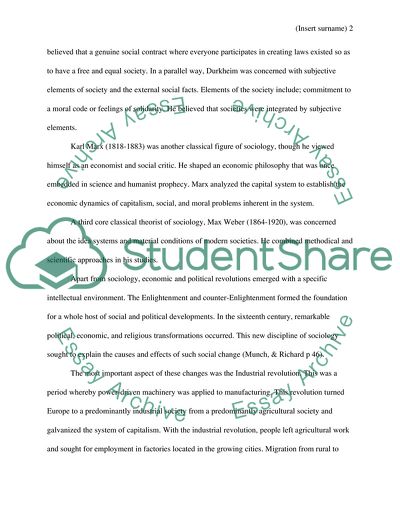Cite this document
(The Convergence and Divergence of the Thoughts of Marx, Weber, and Essay Example | Topics and Well Written Essays - 2000 words, n.d.)
The Convergence and Divergence of the Thoughts of Marx, Weber, and Essay Example | Topics and Well Written Essays - 2000 words. https://studentshare.org/sociology/1816966-social-theory-essay
The Convergence and Divergence of the Thoughts of Marx, Weber, and Essay Example | Topics and Well Written Essays - 2000 words. https://studentshare.org/sociology/1816966-social-theory-essay
(The Convergence and Divergence of the Thoughts of Marx, Weber, and Essay Example | Topics and Well Written Essays - 2000 Words)
The Convergence and Divergence of the Thoughts of Marx, Weber, and Essay Example | Topics and Well Written Essays - 2000 Words. https://studentshare.org/sociology/1816966-social-theory-essay.
The Convergence and Divergence of the Thoughts of Marx, Weber, and Essay Example | Topics and Well Written Essays - 2000 Words. https://studentshare.org/sociology/1816966-social-theory-essay.
“The Convergence and Divergence of the Thoughts of Marx, Weber, and Essay Example | Topics and Well Written Essays - 2000 Words”. https://studentshare.org/sociology/1816966-social-theory-essay.


